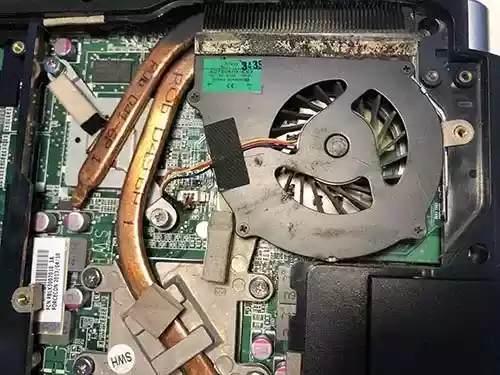Is your laptop feeling more like a miniature furnace lately? That hot air blowing out from its vents might signal an overheating issue. Excessive heat can harm your laptop’s components and impact its performance. But fear not, understanding the causes and resolving these issues can often be straightforward. Here’s a step-by-step guide to diagnose and address laptop overheating:
Check Ventilation
Inspect the laptop’s ventilation system. Ensure that the vents are clear of dust, lint, or any obstructions. Use compressed air or a soft brush to gently clean the vents.
Elevate and Unobstruct
Avoid using your laptop on soft surfaces like beds or blankets. Place it on a hard, flat surface to allow proper airflow. Elevating the back with a laptop stand or book can enhance airflow beneath the device.
Monitor Internal Temperature
Install software to monitor the laptop’s internal temperature. Programs like HWMonitor or SpeedFan can provide real-time temperature readings for various components. Identify which components are overheating.
Reduce Workload
Limit the number of active applications and processes running simultaneously. Close unnecessary programs, especially resource-intensive ones, to reduce the workload on the CPU and GPU.
Update Drivers and Software
Ensure your laptop’s drivers and operating system are up to date. Manufacturers often release updates that optimize system performance and fix bugs, which can contribute to overheating.
Modify Power Settings
Adjust the power settings to optimize energy usage. Opt for a balanced power plan or adjust settings to minimize CPU usage when the laptop is not in heavy use.
Investigate Cooling System
Examine the laptop’s cooling system, including the fans and heat sinks. Malfunctioning fans or clogged heat sinks can lead to overheating. If the fans are not spinning properly, it might be necessary to replace them.
Apply Thermal Paste
If you’re comfortable with hardware, consider reapplying thermal paste to the CPU and GPU. Over time, the paste can deteriorate, causing poor heat transfer. This step requires some technical expertise.
External Cooling Solutions
Invest in external cooling pads or laptop coolers. These accessories come with additional fans and are designed to help dissipate heat more effectively.
Consult a Professional
If the overheating persists despite your efforts, seek professional assistance. A technician can perform a more in-depth diagnosis and suggest specific solutions or hardware replacements.
Final Thought:
Laptop overheating is a common issue, but with the right approach, it can often be resolved or mitigated. Regular maintenance, proper ventilation, and cautious use can significantly extend your laptop’s lifespan and maintain its performance.
By following these steps and keeping a vigilant eye on your laptop’s temperature, you can address overheating issues effectively, ensuring a cooler, more efficient computing experience.
